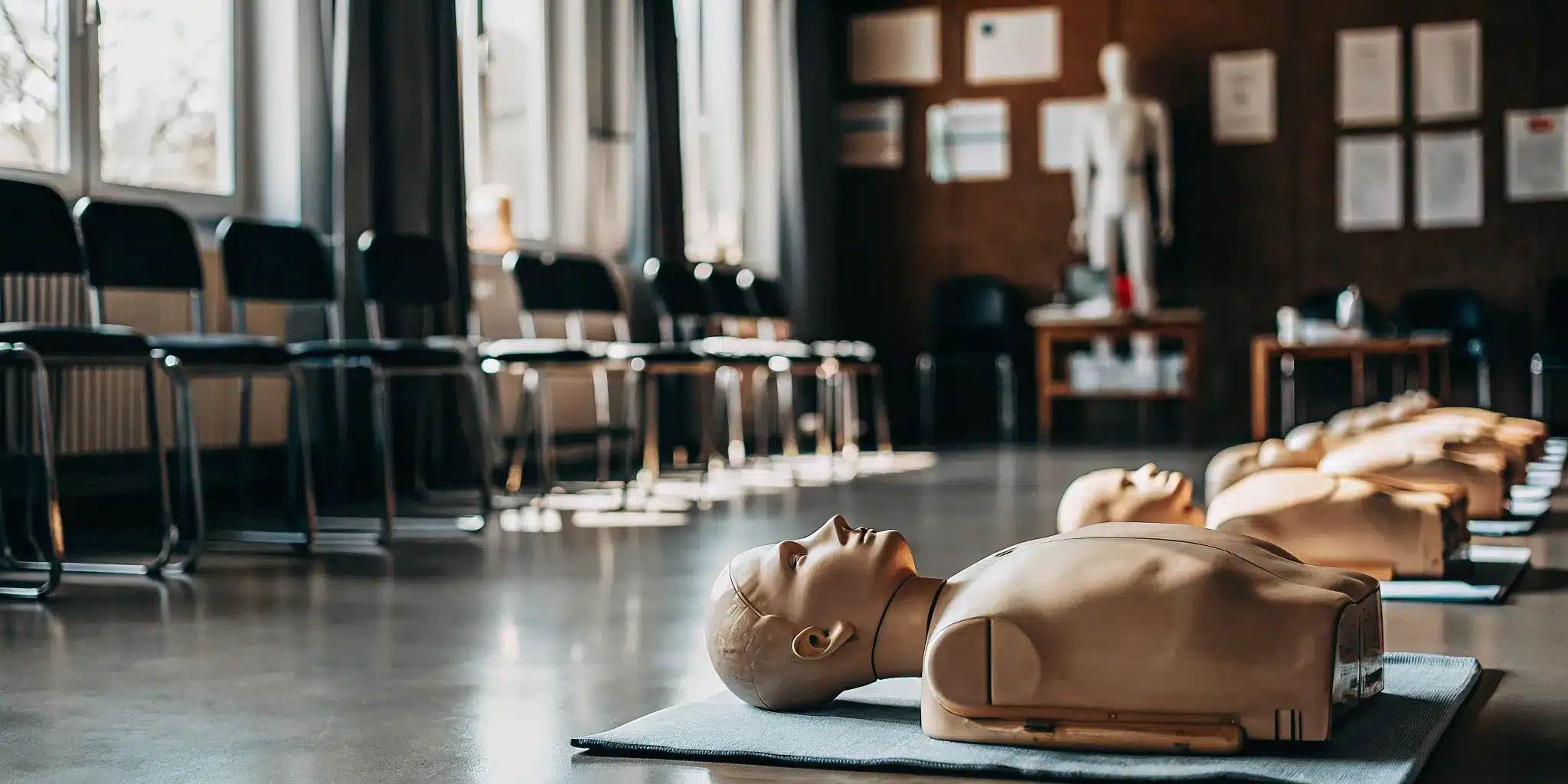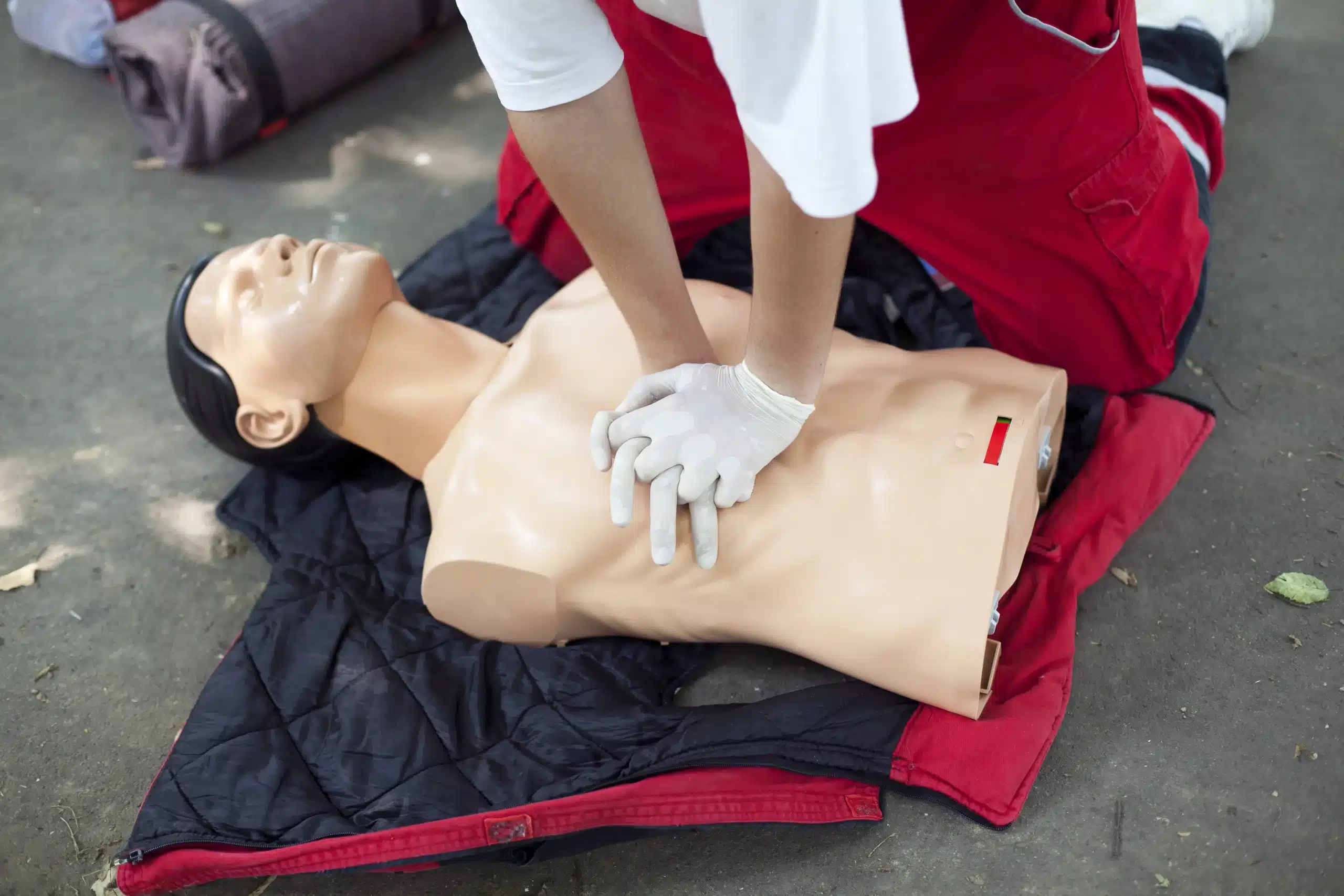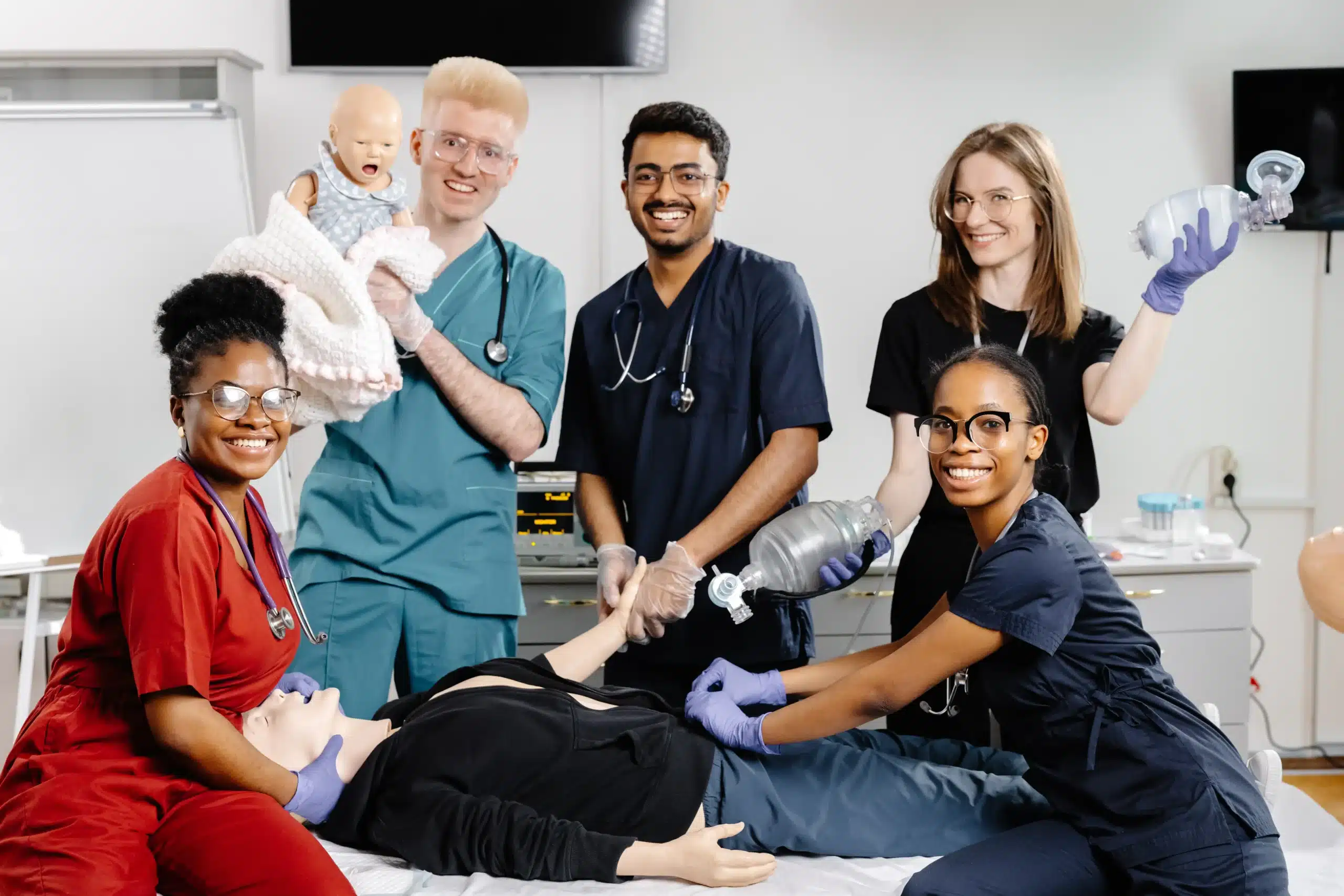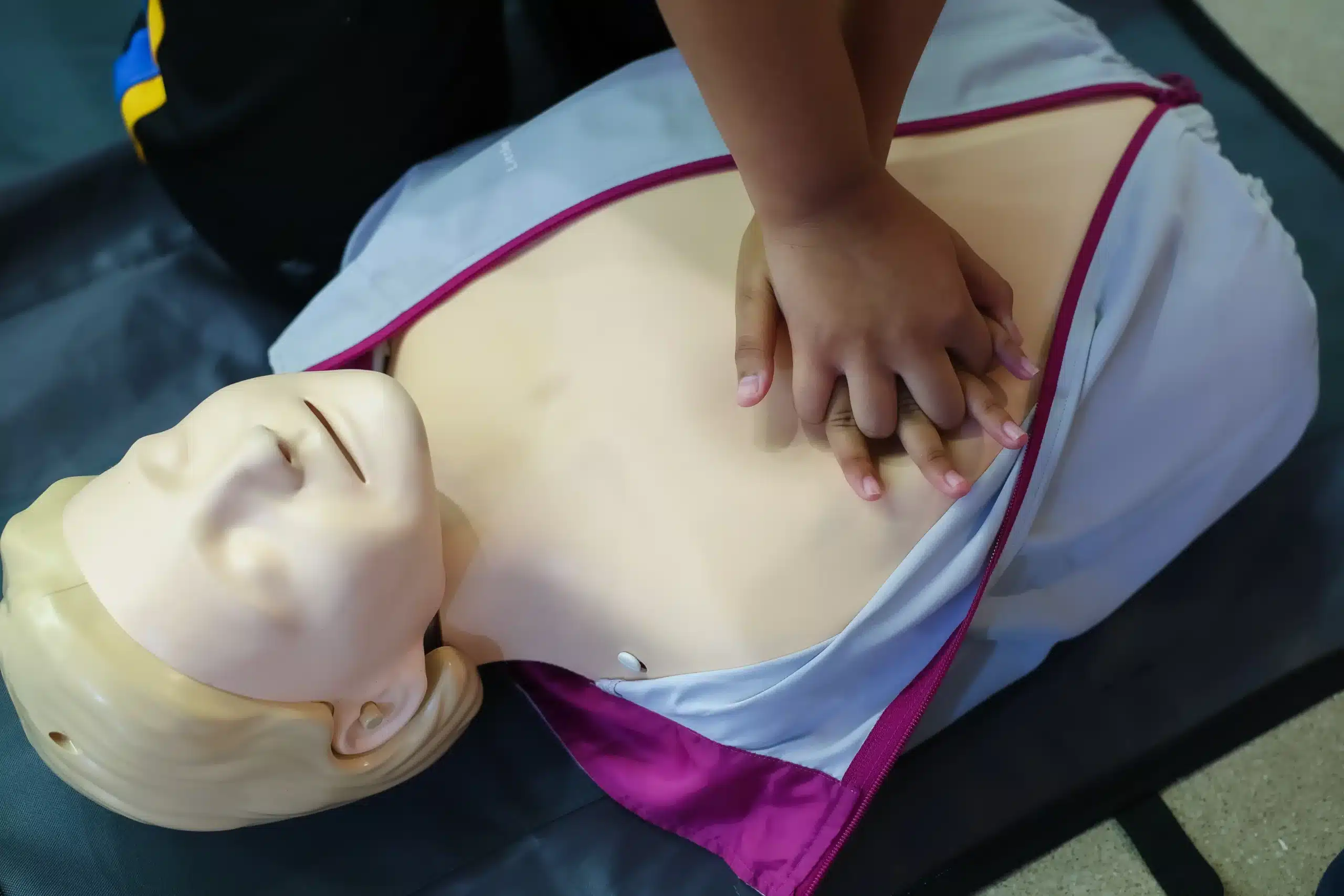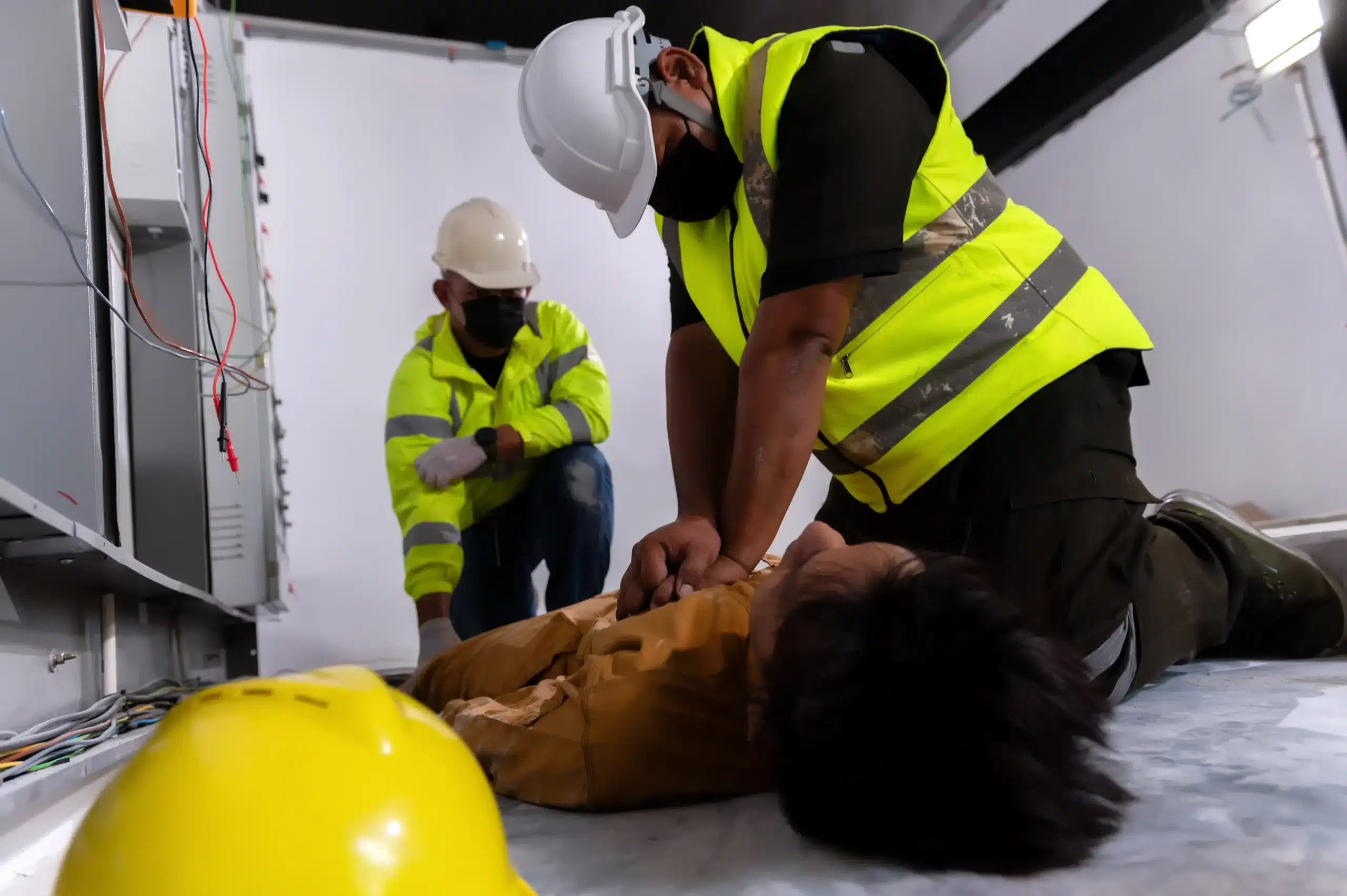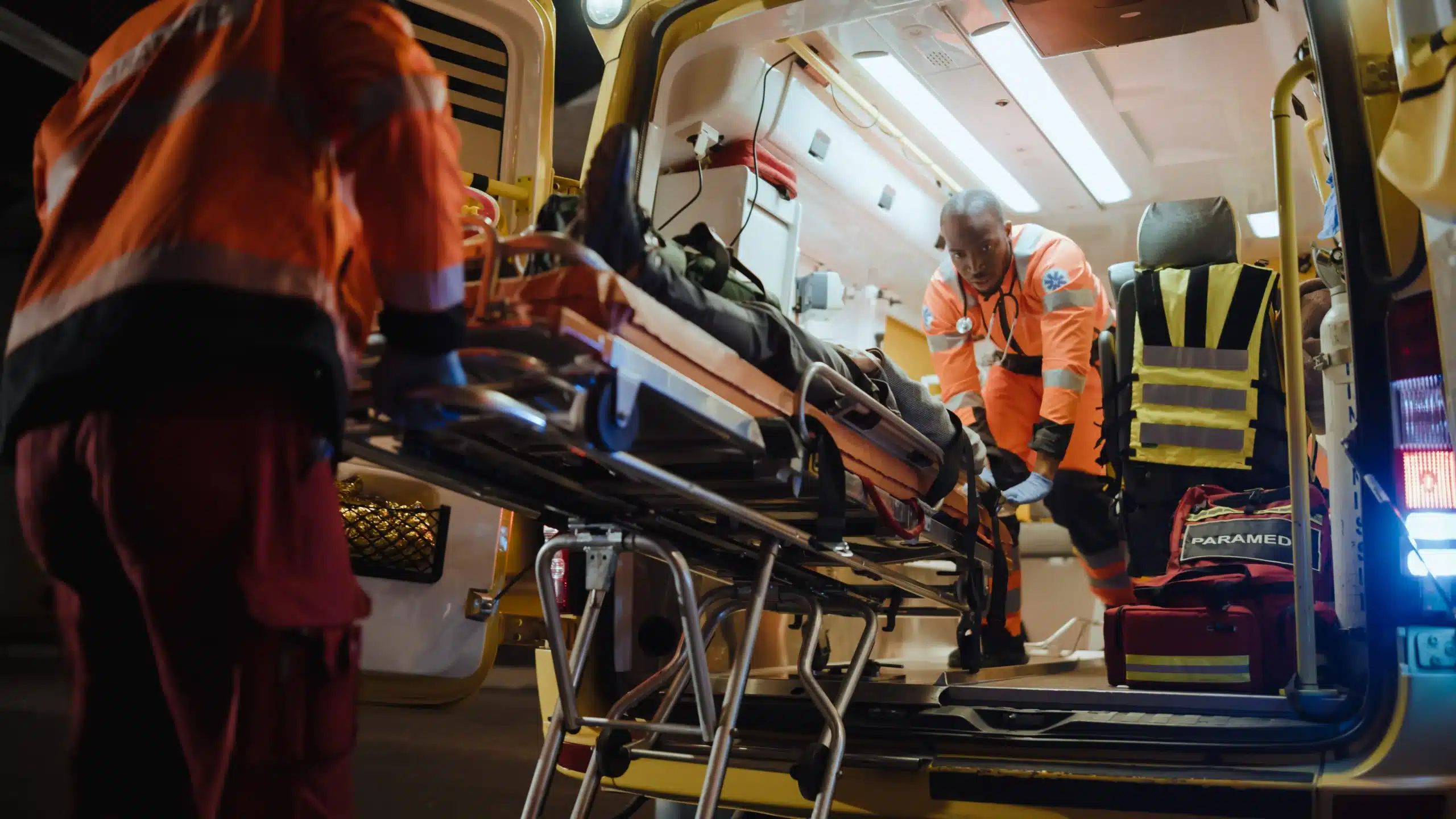Living in Tulare County means being part of a community, and part of that means looking out for one another. Knowing what to do in a medical emergency can make all the difference. BLS certification in Tulare County empowers you with the skills to respond effectively to such situations. Whether you’re a healthcare professional, a concerned citizen, or simply want to be prepared, this training provides the knowledge and confidence to act quickly and potentially save a life. This article explores the importance of BLS certification, where to find training in Tulare County, what the certification entails, and how it can benefit you.
Key Takeaways
- BLS certification provides comprehensive training: It goes beyond basic CPR to include AED use, airway management, and other essential skills for responding to medical emergencies.
- Choose a BLS provider that meets your needs: Consider accreditation, instructor qualifications, course formats, and cost when selecting a training center in Tulare County.
- Maintain your skills with regular recertification: BLS certification is valid for two years. Renew your training to stay up-to-date on the latest life-saving techniques and meet employer requirements.
What is BLS Certification & Why Does it Matter in Tulare County?
Basic Life Support (BLS) certification equips healthcare providers, first responders, and other professionals with the skills to respond to life-threatening medical emergencies. BLS training covers core life-saving techniques like high-quality CPR, airway management, and how to use an AED. It goes beyond basic CPR training with a more comprehensive approach to emergency cardiovascular care. It’s the foundation for anyone involved in patient care or emergency response, emphasizing early recognition and intervention—critical factors that can significantly improve patient outcomes. Learn more about our BLS courses.
In Tulare County, BLS certification is especially important. Our community relies on skilled professionals ready to respond effectively to emergencies. BLS-certified individuals play a vital role in ensuring the health and safety of our residents, whether in hospitals, clinics, or out in the field. From understanding the nuances of infant CPR to mastering AED use, BLS training provides the tools to make a real difference. For healthcare professionals, maintaining these skills is often a job requirement and demonstrates a commitment to high-quality care. We offer convenient RQI classes for healthcare providers seeking a flexible and efficient way to maintain their BLS certification. Having readily available, highly trained individuals strengthens our local emergency response network and contributes to better health outcomes for everyone.
Where to Get BLS Certified in Tulare County
Finding the right BLS certification course in Tulare County depends on your needs and preferences. Here’s a rundown of reputable options:
Safety Training Seminars
If convenience and affordability are your priorities, check out Safety Training Seminars in Visalia. They offer BLS certification courses seven days a week and are committed to having the lowest prices in the county, backed by their Low Price Guarantee. As a woman-owned American Heart Association (AHA) Training Center, they provide high-quality instruction. Serving Visalia, Tulare, and Delano, their central location makes them accessible for many in Tulare County. You can easily contact them to learn more about their offerings.
College of the Sequoias
For a more traditional academic setting, the College of the Sequoias offers BLS CPR classes leading to AHA certification. This is a good option for students already at COS or those seeking a college-based program.
TulareCPR
TulareCPR provides AHA certifications and recertifications in BLS, plus other courses like CPR, ACLS, PALS, First Aid, and Bleeding Control. They serve Tulare and surrounding areas, including Visalia, Selma, Dinuba, and Kingsburg.
Central Valley Medical Education
Central Valley Medical Education offers various AHA and Emergency Nurses Association (ENA) courses, including BLS certification and renewal. They focus on healthcare providers and offer different course formats.
American Red Cross
The American Red Cross is a well-known provider of BLS certification, renewal, and training throughout California. Their courses are geared towards healthcare providers and aspiring first responders. Their online and blended learning options might suit those who need flexibility.
How to Get BLS Certified: Enrollment to Certification
Getting your BLS certification is a straightforward process. Here’s a step-by-step guide to help you from enrollment to holding your certification card:
Enroll in a Course
First, find a reputable BLS course provider. In Tulare County, you have several options, including Safety Training Seminars, the College of the Sequoias, and TulareCPR. Check their websites for course schedules and availability. Many providers offer weekday and weekend classes to accommodate busy schedules. Once you’ve chosen a provider and a date that works for you, simply register online or over the phone.
Complete Course Components
BLS courses blend online learning with in-person skills sessions. Expect to complete online modules covering essential concepts like high-quality CPR, AED use, and airway management. These modules often include interactive exercises and videos to reinforce your learning. The in-person portion of the course focuses on hands-on practice. You’ll work with instructors to develop and refine your skills in a simulated environment. This part of the training often covers specialized techniques for infants, children, and adults, ensuring you can provide appropriate care for individuals of all ages. The American Red Cross offers a similar BLS course designed for healthcare professionals.
Pass Your Skills Evaluation
After completing the online coursework and in-person skills sessions, you’ll participate in a skills evaluation. This practical test assesses your ability to perform BLS techniques correctly. Some providers, like TulareCPR, use the AHA’s HeartCode eLearning system, which streamlines the process. This typically involves completing online learning followed by an in-person skills check. Your instructor will provide feedback and guidance to help you master the necessary skills.
Take the Certification Exam
Once you’ve demonstrated competency in the skills evaluation, you’ll typically take a written exam to assess your knowledge of BLS principles and procedures. This exam often covers topics from the online modules and in-person sessions. Upon successful completion of the exam, you’ll receive your BLS certification card, valid for two years. Remember that BLS certification requires renewal, and renewal courses are available both online and in person. Staying current with your certification ensures you’re always prepared to provide effective life-saving care.
BLS Certification: Costs & Value
Getting BLS certified is an investment in your skills and ability to respond to emergencies. But how much does it cost, and what affects the price? Let’s break down BLS certification costs in Tulare County and explore the value this training provides.
Average Tulare County Prices
In Tulare County, BLS certification courses typically range from $60 to $150. This range depends on several factors, including the training provider, the course format (in-person vs. blended learning), and included materials. Comparing prices from different providers like Tulare CPR is always a good idea to find what works for your budget.
Factors Affecting Cost
Several factors influence the cost of your BLS certification. The type of certification itself plays a role. For example, BLS for Healthcare Providers often has a different price than a Heartsaver CPR/AED course. Course length can also affect the cost, as longer courses with more in-depth content may have higher fees. The training provider’s reputation and experience also influence pricing. Some providers, like Safety Training Seminars, prioritize affordability with high-quality instruction. The value of BLS training, like increased confidence in emergencies, often outweighs the upfront cost, especially given its potential career impact, as highlighted by Inclusive Solutions.
Safety Training Seminars’ Low Price Guarantee
Safety Training Seminars offers a low price guarantee on BLS certification courses. This commitment to affordability makes quality training accessible to everyone in Visalia, Tulare, and Delano. Check their website for details on pricing and courses.
Group Rates & Discounts
If you’re training a group, like coworkers or community members, ask about group discounts. Many providers, including Safety Training Seminars, offer reduced rates for group bookings. This can be a smart way to ensure everyone gets certified together. Contact Safety Training Seminars through their contact page to discuss group rates and customize a training session.
How Long is BLS Certification Valid & How Do I Renew?
Knowing the validity period of your BLS certification and how to renew it is essential for maintaining your credentials and staying up-to-date with the latest life-saving techniques. This section clarifies everything you need to know about BLS certification duration and the renewal process.
Certification Duration
BLS (Basic Life Support) certification is valid for two years. This timeframe is established by organizations like the American Heart Association to ensure that healthcare providers and first responders maintain a high level of competency in performing life-saving skills. After two years, a renewal is required to refresh your knowledge and skills, reflecting any updates to guidelines and best practices. Keeping your certification current is crucial for providing effective and safe care in emergency situations. Learn more on our BLS course page.
Renew Your Certification
Before your BLS certification expires, you’ll need to complete a recertification course. This course covers the same core content as the initial BLS course but is often shorter, focusing on key skills and updates. Check with your certifying organization or employer for specific renewal requirements. At Safety Training Seminars, we offer convenient BLS renewal courses in Visalia. Contact us to learn more about our renewal options and flexible scheduling.
Stay Current
Maintaining current BLS certification isn’t just about checking a box; it’s about ensuring you’re prepared to handle real-life emergencies. Regularly updating your skills reinforces best practices and keeps you informed of any changes in guidelines. This commitment demonstrates your dedication to providing high-quality care and can increase your confidence when responding to critical situations. Whether you’re a healthcare professional, a first responder, or someone who wants to be prepared, staying on top of your BLS certification is a valuable investment. Our Low Price Guarantee makes staying certified affordable and accessible.
BLS vs. Other CPR Certifications: Which is Right for You?
Knowing which CPR certification best suits your needs can feel overwhelming with so many options. This section clarifies the key differences between BLS and other common CPR certifications like Basic CPR and ACLS, helping you make the informed choice.
BLS vs. Basic CPR
BLS (Basic Life Support) and Basic CPR certifications both teach life-saving techniques, but BLS provides a more comprehensive skillset. Think of Basic CPR as foundational CPR knowledge for anyone, from teachers and coaches to community members. It prepares you for emergencies in everyday situations. BLS, however, is designed for healthcare providers and first responders, such as doctors, nurses, EMTs, and firefighters. It covers everything included in Basic CPR training, while adding advanced techniques for managing cardiac arrest, respiratory distress, and airway obstructions. The American Heart Association BLS course at Safety Training Seminars in Visalia offers this in-depth training.
BLS vs. ACLS
BLS certification is valuable across many professions, but ACLS (Advanced Cardiovascular Life Support) certification focuses specifically on healthcare professionals like physicians, pharmacists, and medical students. ACLS builds upon the BLS foundation, emphasizing advanced interventions, team dynamics, and complex medical emergencies. If you’re considering pursuing ACLS certification, a solid understanding of BLS is crucial. Learn more about advanced certifications, including RQI classes, on the Safety Training Seminars website.
Choose the Right Certification
How do you choose the right path? If you’re in healthcare or a first responder, BLS certification is usually a job requirement to ensure you can handle emergencies effectively. For those outside these fields, Basic CPR certification may be sufficient for everyday situations. Consider your work environment and the types of emergencies you might encounter when making your decision. BLS certification is valid for two years and requires renewal, with options for both online and in-person renewal courses. Reach out to Safety Training Seminars through their contact page to discuss which course best fits your situation. Their low price guarantee for Tulare County residents makes high-quality training accessible and affordable.
What Life-Saving Skills Will I Learn in a BLS Course?
A BLS course equips you with essential skills to respond confidently during medical emergencies. From CPR techniques to using an AED, you’ll gain practical knowledge and hands-on training that can make a real difference. Let’s break down the key life-saving skills you’ll develop:
High-Quality CPR
High-quality CPR is the cornerstone of BLS training. You’ll learn proper techniques for chest compressions and rescue breaths, including correct hand placement, compression depth, and rate. This training emphasizes maintaining effective blood circulation during cardiac arrest. For more information, visit our BLS course page.
Using AEDs
An Automated External Defibrillator (AED) can significantly increase the chances of survival during cardiac arrest. BLS courses cover how to operate an AED safely and effectively, recognize when it’s needed, and integrate it into the CPR process. You’ll practice using AEDs on both adults and children, building your confidence to respond quickly and correctly. We also offer RQI classes for specialized AED training.
Airway Management
Effective airway management is crucial for providing oxygen to a person in distress. In a BLS course, you’ll learn various techniques to open and maintain a clear airway, including the head-tilt/chin-lift and jaw-thrust maneuvers. The training also covers using airway adjuncts, such as oropharyngeal airways, to further assist with ventilation.
Team Dynamics in Emergencies
Responding to a medical emergency is often a team effort. BLS training emphasizes the importance of effective communication and coordination. You’ll learn how to work seamlessly with other responders, ensuring a cohesive and efficient response to cardiac and respiratory emergencies. Contact us to learn more about our BLS courses.
Common BLS Certification Myths
Let’s clear up some common misconceptions about BLS certification. These myths can prevent people from getting this life-saving training, so we’ll set the record straight.
“BLS is Only for Healthcare Professionals”
It’s easy to assume BLS certification is just for doctors and nurses. While it is essential for healthcare providers, BLS skills are valuable for anyone. Think about it: knowing how to use an AED, clear an airway, or perform CPR can make a real difference in any emergency. Teachers, coaches, lifeguards, security guards, and even family members of those with chronic health conditions can benefit from BLS training. In fact, the more people in our community equipped with these skills, the better.
“Online Courses Are Enough”
While online BLS courses offer a convenient way to learn the material, they don’t replace hands-on practice. Imagine trying to perform CPR for the first time in a real emergency. A bit nerve-wracking, right? In-person training at Safety Training Seminars gives you the chance to practice these skills in a safe environment with expert instructors. You’ll receive feedback, build muscle memory, and gain the confidence you need to act quickly and effectively.
“BLS Certification is Lifelong”
Unfortunately, BLS certification isn’t a “one and done” deal. Medical guidelines and best practices are constantly evolving. Renewing your certification regularly ensures you’re up-to-date on the latest techniques and provides a refresher on these critical skills. This keeps your knowledge fresh and your skills sharp, so you’re always ready to respond effectively.
“BLS is the Same as Basic CPR”
While BLS includes CPR, it goes beyond the basics. Basic CPR training focuses primarily on chest compressions and rescue breaths. BLS certification covers a broader range of skills, including using an AED, relieving choking, and managing different types of respiratory emergencies. It also emphasizes teamwork and communication, which are crucial in high-pressure medical situations. BLS is designed to equip you with a more comprehensive set of skills to handle complex medical emergencies. For more advanced training options, check out our RQI classes.
How to Choose a BLS Provider in Tulare County
Finding the right BLS provider is crucial for receiving high-quality training that prepares you for real-world emergencies. Here’s what to consider when making your decision in Tulare County:
Accreditation & Course Content
First, confirm the provider’s accreditation. Ensure they offer courses accredited by a nationally recognized organization like the American Heart Association (AHA). Safety Training Seminars is a woman-owned AHA Training Center offering various AHA-accredited courses. This accreditation guarantees the training aligns with national standards and equips you with the necessary skills. Carefully review the course content to ensure it covers essential BLS components like CPR, AED use, and airway management.
Instructor Qualifications
The instructor’s expertise directly impacts your learning experience. Look for providers with experienced, certified instructors. For example, the Red Cross offers BLS training courses delivered by expert instructors. Instructors with extensive experience can offer valuable insights and guidance, enhancing your understanding of BLS principles.
Course Formats
Consider your learning style and schedule when evaluating course formats. Many providers offer various options, including traditional in-person classes and blended learning (a combination of online and in-person sessions). The Red Cross offers both formats, allowing you to choose the best fit. This flexibility ensures you can access quality training regardless of your schedule or learning preferences. Safety Training Seminars offers daily classes in Visalia to accommodate busy schedules.
Cost & Availability
Finally, compare costs and availability. While cost is a factor, prioritize value and quality instruction. Safety Training Seminars offers a Low-Price Guarantee for their courses in Tulare County. Check for available class dates and times that suit your needs. A good provider will offer various options to minimize scheduling conflicts. Consider inquiring about group discounts if you’re training with colleagues.
Why Get BLS Certified in Tulare County?
Getting your BLS certification is a smart move, regardless of your profession. It equips you with essential life-saving skills applicable in various situations, both in and outside healthcare settings. Here in Tulare County, BLS certification offers distinct advantages:
Advance Your Career
BLS certification is often a prerequisite for many healthcare roles. It demonstrates your commitment to patient safety and provides you with the skills to handle medical emergencies effectively. As American Health Training points out, BLS certification is a critical credential for healthcare professionals and first responders, giving them the skills and knowledge to respond to medical emergencies and save lives. Whether you’re a nurse, EMT, or aspiring medical professional, having a current BLS certification can significantly enhance your career prospects. It can open doors to more job opportunities and potentially increase your earning potential.
Improve Patient Care
For those already working in healthcare, BLS certification ensures you can deliver the highest standard of care. BLS training covers a range of techniques tailored to different age groups, from infants to adults. This specialized knowledge, as highlighted by My CPR Certification Online, allows you to respond appropriately and confidently to various patient needs. Ultimately, BLS certification empowers you to make a real difference in critical situations and contribute to positive patient outcomes.
Gain Confidence in Emergencies
BLS certification isn’t just for healthcare professionals. It’s a valuable asset for anyone who wants to be prepared for emergencies. Knowing how to perform high-quality CPR, use an AED, and manage airways can be life-saving in unexpected situations. Medtigo emphasizes the importance of BLS training in emergencies, including situations involving choking or cardiac arrest. This training gives you the confidence to act quickly and effectively, potentially saving a life before professional help arrives.
Meet Employer Requirements
Many employers in Tulare County, especially those in healthcare and related fields, require BLS certification. This is often a condition of employment, ensuring all staff members are equipped to handle medical emergencies. The Red Cross clarifies that some jobs mandate BLS certification. By obtaining your certification, you meet these requirements and demonstrate your preparedness to contribute to a safe work environment. Contact Safety Training Seminars to learn more about our BLS courses and how they can benefit you. We offer a variety of courses to fit your schedule and budget, including our Low Price Guarantee. Check out our available BLS courses in Visalia today.
Related Articles
- Why CPR is Important in Healthcare – Visalia CPR Classes
- BLS CPR Classes in Visalia, CA – Visalia CPR Classes
- Why Workplace CPR and First-Aid Training Matters
- CPR, BLS, ACLS, PALS, & First-aid Classes in Visalia, CA
- The Science Behind Effective CPR – Visalia CPR Classes
Frequently Asked Questions
What’s the difference between BLS and CPR certification?
While both teach life-saving techniques, BLS certification goes beyond basic CPR. Basic CPR focuses primarily on chest compressions and rescue breaths for adults, children, and infants. BLS includes these skills but also covers AED use, airway management techniques, and team dynamics during emergencies. It’s designed for healthcare providers and first responders, giving them a more comprehensive skillset for various medical emergencies.
How much does BLS certification cost in Tulare County?
BLS certification costs in Tulare County typically range from $60 to $150. The price varies depending on the training provider, course format (in-person or blended learning), and included materials. Safety Training Seminars offers a Low Price Guarantee, making it a good option for affordable, high-quality training. It’s always wise to compare prices from different providers to find the best fit for your budget.
How long is my BLS certification valid, and how do I renew it?
BLS certification is valid for two years. To renew, you must complete a recertification course before your current certification expires. Renewal courses cover the same core content as the initial BLS course but are often shorter, focusing on key skills and updates to guidelines. Several providers in Tulare County, including Safety Training Seminars, offer convenient renewal courses.
Is BLS certification only for healthcare professionals?
Absolutely not! While BLS is often a job requirement for healthcare providers and first responders, anyone can benefit from this training. Knowing how to perform CPR, use an AED, and manage airways can be invaluable in any emergency. Teachers, coaches, lifeguards, and even family members of individuals with chronic health conditions can gain confidence and preparedness through BLS certification.
How do I choose a BLS provider in Tulare County?
Look for a provider accredited by a nationally recognized organization like the American Heart Association. Check the instructor’s qualifications and experience, and consider the course format (in-person, blended learning, or online) that best suits your learning style and schedule. Compare costs and availability, and don’t hesitate to ask about group discounts if you’re training with others. Reading reviews and seeking recommendations can also help you find a reputable provider.
This article was written for free by MEGA SEO.
